On using power and privilege for change featuring Jeff Raikes
Transcript
[Using power and privilege for change. Jeff Raikes, co-founder, Raikes Foundation. A white man in his sixties with wavy gray hair and goatee, wearing a navy blue jacket with a rumpled pocket square.]
ANNOUNCER: Please welcome Jeff Raikes.
JEFF RAIKES: This is a quick talk for white people.
[laughter]
Now, let me explain. I first met Darren Walker right after he was named head of the Ford Foundation, when I was still the CEO of the Bill and Melinda Gates Foundation. I felt an immediate connection, but our deeper friendship developed a few years ago when we shared the stage with Michele Norris at the Aspen Ideas Festival. Darren and Michele and I were talking about race and, in particular, how philanthropy needed to ditch this color-blind approach that was and is still so prevalent in the field and, more broadly, in society. It was really a fascinating conversation, and toward the end of the conversation Darren said something to this effect, “When I see a bunch of guys who look like Jeff driving around in a golf cart in Dallas, having this very same conversation that we’re having on the Aspen stage, I’ll know that we’ve won.”
[laughter]
The crowd cracked up, but that comment stuck with me. And Darren has repeatedly reminded me since then that if we are to have an open and honest conversation in this country about racial justice that will lead to healing and inclusive prosperity, white people like me have a big role to play, and we cannot be coy about it. I needed to get over my fears of saying the wrong thing or saying the right thing in the wrong way, and just jump in. And I still have a lot to learn. I am still guilty of centering white people, white perspective and expertise, white comfort as a first impulse, and I have to catch myself, stop, and remember that my experience is not the only one that matters. And I know that sounds painfully obvious, but when the world has been built to accommodate you, it’s a hard habit to break.
[laughter]
Privilege is invisible to those who possess it. And that lack of awareness undergirds the myth of color blindness and leads to a sense of entitlement that is debilitating for society. So I am speaking out and sharing what I’m learning about white dominance and its invisibility to those of us who are white, and how that harms and distorts society in a way that creates a more steep uphill climb for people who don’t look like me. Because once you recognize it, the myriad ways that we’ve created an obstacle course with setbacks and steep hills to climb for people who are not white, the more that we understand what we need to do. This has to change if our nation is to prosper. Now, like I said, the world has been built to accommodate guys like me, and the systems that support our young people are designed for my kids. But let’s take a step back, and let’s think about the life of a black boy in this country. He is born to a mother who is less likely to receive high-quality prenatal care and more likely to die in childbirth. He lives in a household shrouded by the legacy of redlining and housing discrimination, preventing his ancestors from building the wealth that comes from owning a home and passing economic security onto children and grandchildren. He attends a public school that is financed by local property taxes, so he gets far less funding for his education than a child attending a public school in a wealthy neighborhood. His teachers, who are overwhelmingly white, carry the implicit biases that all of us carry. He is tagged as dangerous or angry from the time he is in preschool. He is suspended, expelled, and otherwise disciplined at a rate his white peers would never experience or tolerate. His teachers and administrators believe he can’t be as successful as a white child, so he is tracked into less rigorous coursework that will make him far less likely to attend college. If he gets to college, he is far more likely to drop out, because his public school didn’t prepare him, and kids like him are not made to feel that they belong on a college campus. When he applies for a job, if his name sounds black he is far more likely to end up in the reject pile. He is more likely to be a victim of violence, and he is far, far more likely to end up in the criminal justice system, either as a youth or an adult. He is more likely to be homeless. These are not outliers. These are data. These are facts. This is America.
Unfortunately, when we see these outcomes that repeat and often worsen, year after year, we, as a culture, tend to blame the victim and not tackle the system. Now, I think that’s because, as Americans, we love the term “equality.” Everyone gets the same thing and everyone has the same shot. But let’s be real here—that is just not true. If we are going to reckon with our history and dismantle systems of oppression once and for all, we must ground the bootstraps narrative in an equitable context or retire that narrative once and for all. And we’re going to have to think differently about how we make policy that actually helps people who have been shut out. We must change the life trajectory for the black boy I just described. And we don’t do it by changing the boy. We do it by building systems that support his healthy development.
Now, how do we do that? We design it for him. This is an idea that is gaining traction in policy making. It works like this. Design the solution to the systemic problem you are trying to solve for the person who is least well served by the system you are trying to fix. Chances are, if you get it right for those who have suffered most, others will benefit too. That is the power of equity.
Many of the systems, products, and infrastructure we all interact with, from public schools and courts to medicine and technology, were designed mostly by white men to work well for people like us. They were designed at a time when we had antiquated and destructive ideas about race, gender, identity, and disability. And they are holding us back. And they won’t change unless people like me take our privilege and our power, share it, seed it, and transform it into a force for changing our society for the better. We must align and work toward a day when race and expressions of othering are no longer predictors of life outcomes for young people in our country. Can America reimagine itself as a society with equity as a transformative, animating force, so that all individuals have what they need to achieve their potential, and prosperity is more widely shared? Yes. This is what America can be. Thank you.
[applause]
[New gospel of wealth. What does #GenerosityToJustice look like to you? Ford Foundation dot org forward slash new gospel.]
Accessibility Statement
- All videos produced by the Ford Foundation since 2020 include captions and downloadable transcripts. For videos where visuals require additional understanding, we offer audio-described versions.
- We are continuing to make videos produced prior to 2020 accessible.
- Videos from third-party sources (those not produced by the Ford Foundation) may not have captions, accessible transcripts, or audio descriptions.
- To improve accessibility beyond our site, we’ve created a free video accessibility WordPress plug-in.
Jeff Raikes, co-founder of the Raikes Foundation, on getting uncomfortable, listening, and what leaders in philanthropy need to do to advance equity and justice.
“Privilege is invisible to those who possess it.”
– Jeff Raikes
Learn more about New Gospel of Wealth
Other videos in this series
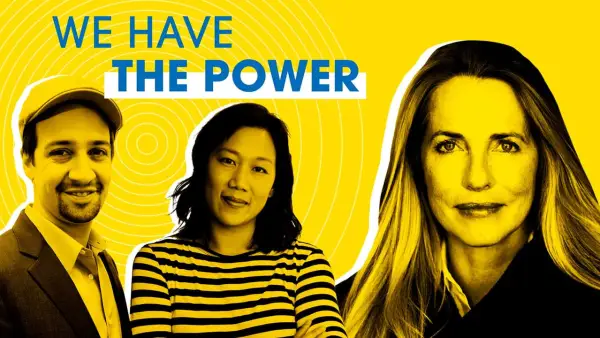
Let’s rethink giving
How can we reimagine philanthropy so that we create a future where there is justice and dignity for all? What are the root causes of the issues and how do we encourage the participation of many and not just a few?
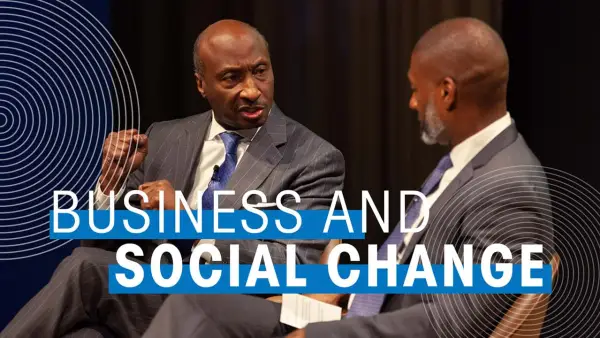
The business of justice featuring Kenneth Frazier and Charles Blow
Kenneth Frazier, CEO of Merck and Co, believes one of the greatest injustices in our society is the health disparities experienced by women of color. A zip code is more likely to determine health outcomes than genetic code. Frazier uses philanthropy to address mortality rate and wants to see more medical personnel listen to their women patients and patients of color.
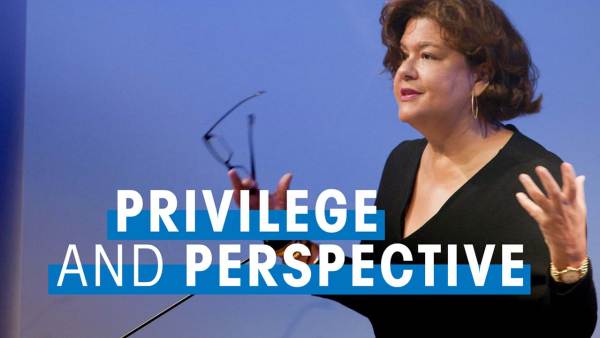
The privilege of perspective featuring Elizabeth Alexander
Elizabeth Alexander, president of the Andrew W. Mellon Foundation, on art, activism, and acknowledging adversity.
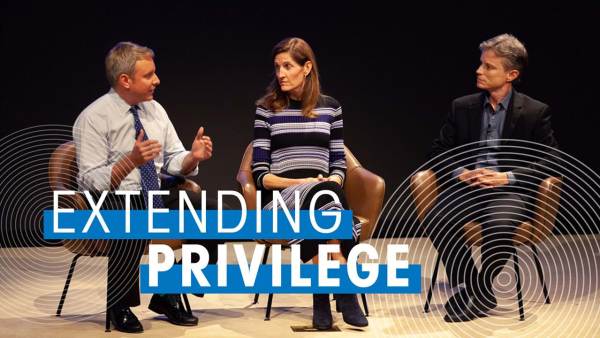
Extending privilege featuring Valerie Rockefeller and Henry Ford III
Henry Ford III, trustee of the Ford Foundation, and Valerie Rockefeller, chair of the Rockefeller Brothers Fund, discuss transforming philanthropy for the 21st century. The families have seen the value of impact investing and believe in partnerships to increase the difference that can be made.
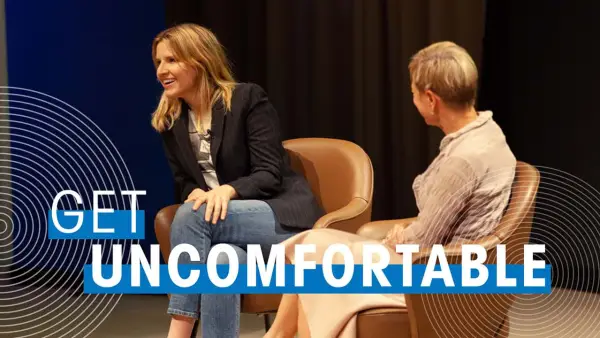
Getting proximate featuring Tara Westover and Hilary Pennington
Tara Westover, author of “Educated,” sees a disconnect between the rural and urban parts of the United States. She believes philanthropists need to be more proximate to the issues they care about, and that spending time with people who aren’t like you is key to disrupting inequality.
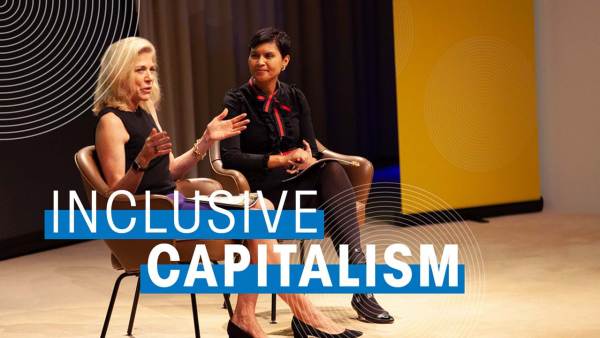
Can capitalism ever really be inclusive? featuring Lynn Forester de Rothschild and Stephanie Mehta
The top 1 percent of the United States controls 42 percent of the national wealth. Lynn Forester de Rothschild, founder of the Center for Inclusive Capitalism, explains that reimagining the economy and making it a sustainable, inclusive system that leads to strong economic growth requires reform.
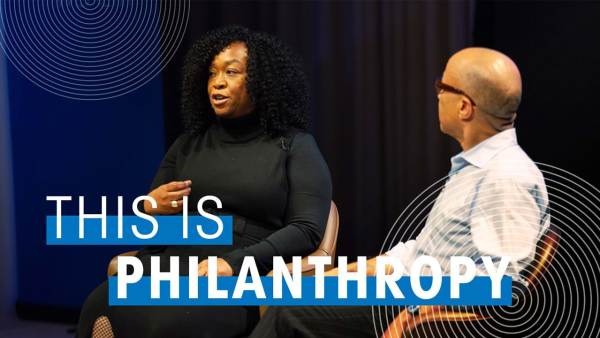
This is what a philanthropist looks like featuring Shonda Rhimes and Darren Walker
Writer and producer Shonda Rhimes has seen the power storytelling has to make change through her work, which centers marginalized people and issues. Rhimes believes philanthropy sets an example others can follow, and says supporting organizations that are already on the ground doing the work is key.
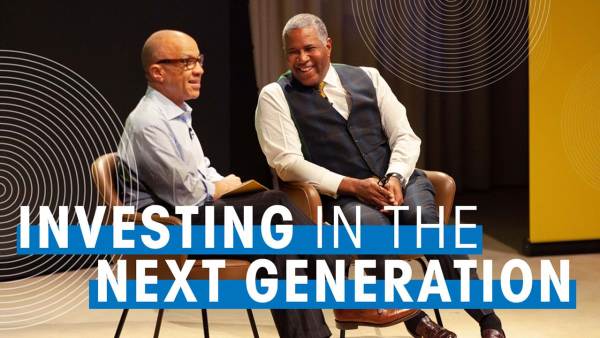
Catalyzing the potential of our time featuring Robert Smith and Darren Walker
Through philanthropy, Robert Smith, CEO of Vista Equity Partners, has alleviated the burden of student debt for a graduating class. He says private philanthropy can help address public policy challenges, such as student loan debt, and is a disruptive opportunity that liberates people to contribute to society in positive ways.
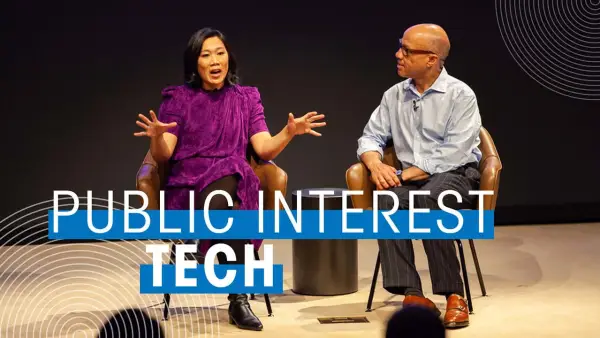
Tech funders changing philanthropy featuring Priscilla Chan & Darren Walker
The top 1 percent of the United States controls 42 percent of the national wealth. Lynn Forester de Rothschild, founder of the Center for Inclusive Capitalism, explains that reimagining the economy and making it a sustainable, inclusive system that leads to strong economic growth requires reform.
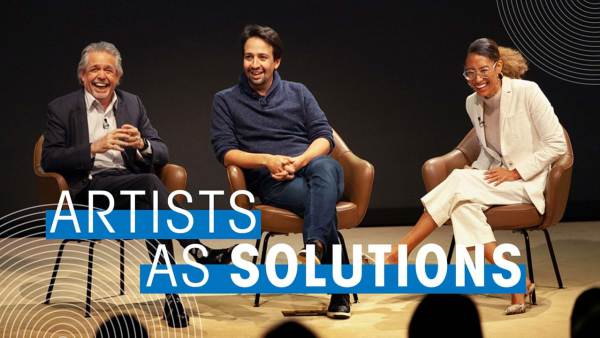
Why artists shouldn’t stay in their lane featuring Lin-Manuel Miranda, Luis Miranda Jr. and Elaine Welteroth
Composer and actor Lin-Manuel Miranda believes all art is political. He and his father, Luis A. Miranda Jr. of the MirRam Group, see the value philanthropy has to empower communities that may have been neglected, and allow them to share their stories through the arts, like Puerto Rico did after Hurricane Maria.
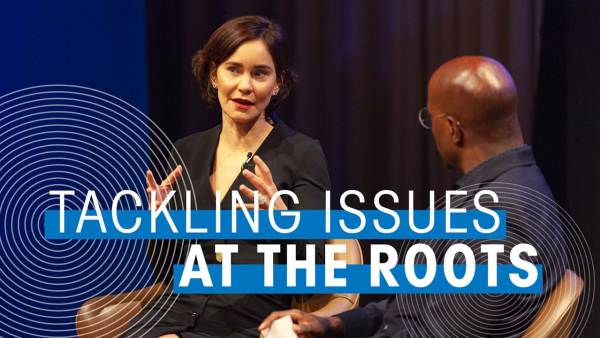
Good philanthropy needs government featuring Laura Arnold and Van Jones
Laura Arnold, co-chair of Arnold Ventures, believes policy change is the lever that will lead to sustainable change. She says we need to attack the systems that are creating the injustices we see, like criminal justice. Philanthropy can create better alternatives that governments can adopt.
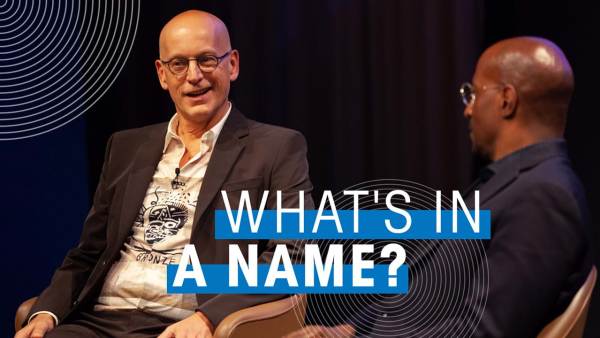
The power of a name featuring Jon Stryker and Van Jones
As a philanthropist, Jon Stryker, president of the Arcus Foundation, believes the act of naming gives power and influence to the work that is supported through his gifts. His philanthropy supports those on the frontlines of justice, providing resources and power to those who need it most.
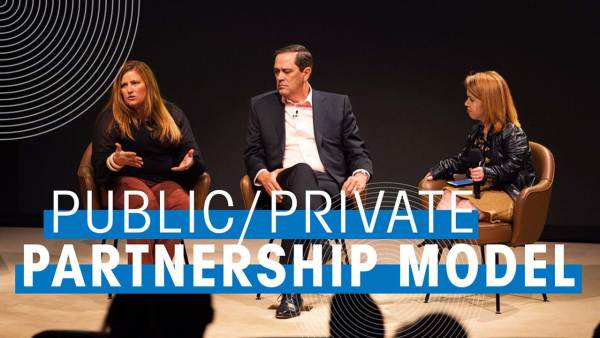
Public-private partnership: A new model for lasting impact featuring Jennifer Loving and Chuck Robbins
Jennifer Loving, CEO of Destination: Home, says a public-private partnership, like the one between her nonprofit and Cisco, headed by Chuck Robbins, can help create a model for the future of philanthropy, and tools like social bonds can help address some of the biggest crises of our time.
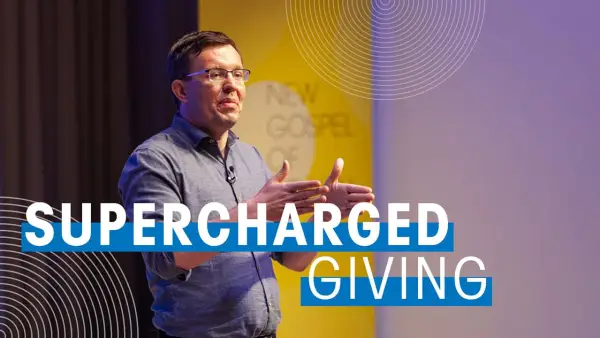
The new power of philanthropy featuring Henry Timms
CEO of Lincoln Center Henry Timms asks how philanthropy can supercharge civic engagement. Timms, who started Giving Tuesday, says trust-based philanthropy needs to shift from generosity to justice, driving more participation from more people, and encouraging meaningful ways to participate and collaborate.
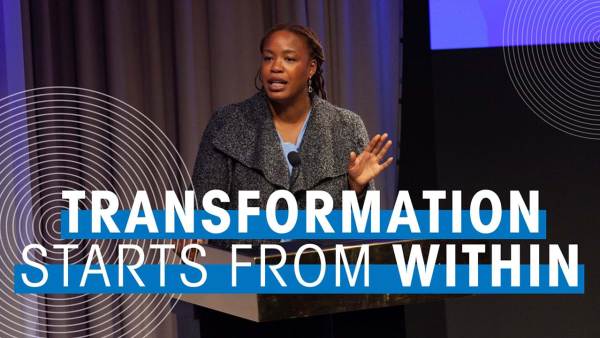
Transforming organizations from the inside featuring Heather McGhee
Heather McGhee, distinguished senior fellow at Demos, shares her experience of working to make the Demos think tank more diverse and led by people of color. Institutional racism, however slight, drives inequality, she says, so transformation needs to be a must-have and not a nice-to-have.
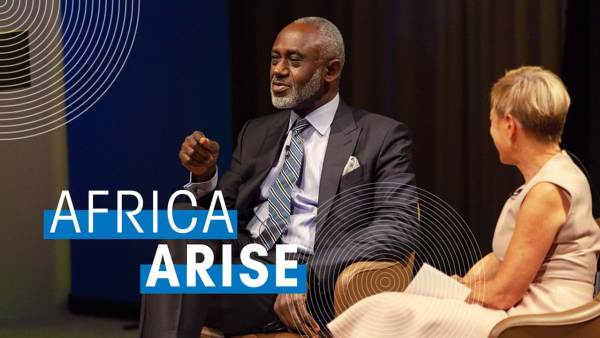
Africa, your time is now featuring Gbenga Oyebode and Hilary Pennington
Ford Foundation trustee Gbenga Oyebode has seen the value of impact investing on the African continent. He believes philanthropy should not just be giving, but investing with a social impact and an economic return. Giving is inherently part of African culture, but needs to be more strategic and collaborative.
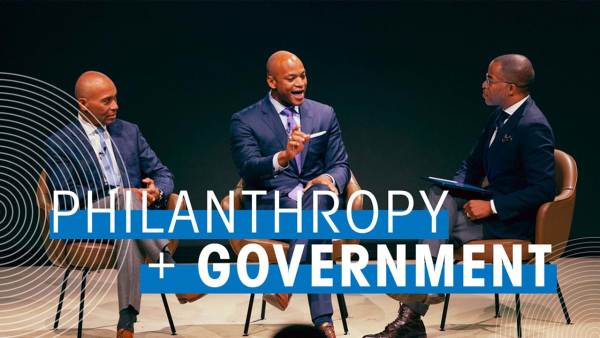
Why good government needs philanthropy featuring Deval Patrick and Wes Moore with Jonathan Capehart
Wes Moore, CEO of Robin Hood, and Deval Patrick, managing director of Bain Capital, see philanthropy working hand-in-hand with government in the fight for equality. Philanthropy can often provide the initial capital needed while government can take over and scale the solution.
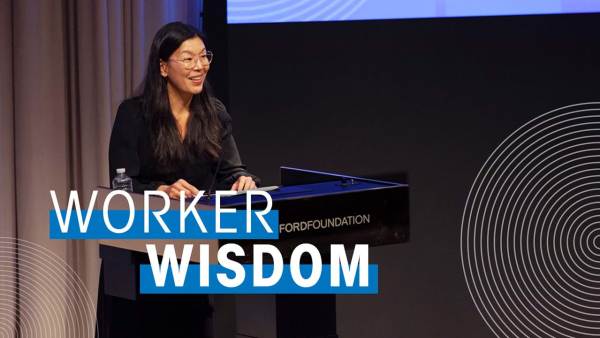
Bringing hidden labor to light featuring Ai-Jen Poo
Ai-jen Poo, executive director of the National Domestic Workers Alliance, says the sector of caregivers and domestic workers continues to grow. Building a future of work that works for all is centered on justice-based philanthropy and not a generosity model.
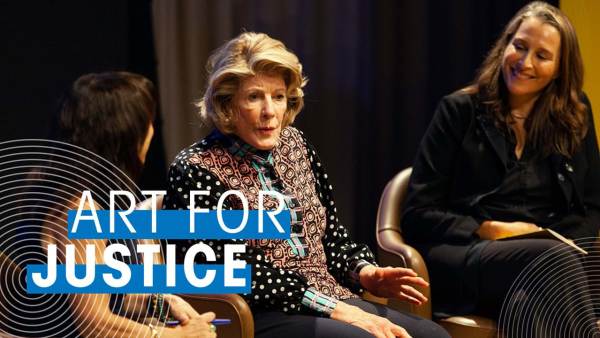
Art for Justice featuring Agnes Gund and Catherine Gund with Maria Hinojosa
The Art for Justice fund was created to help end mass incarceration. Founder Agnes Gund says philanthropy is about addressing issues like this. Catherine Gund believes art has an important part to play in the fight for racial justice and can help change the policies that led to mass incarceration.
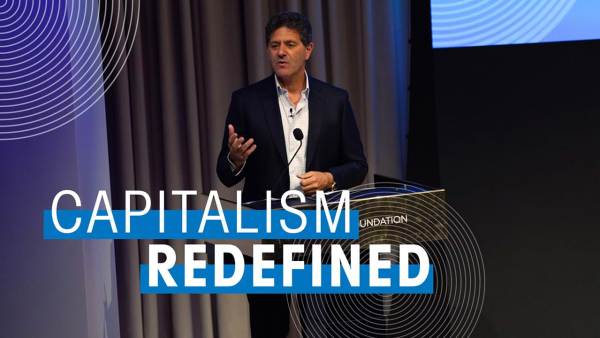
Capitalism redefined featuring Nick Hanauer
Entrepreneur Nick Hanauer asks us to reimagine the economy. He believes we need to change our beliefs about the economy to create a more just, more equitable society for all. By choosing better economic beliefs, we can change society for good.